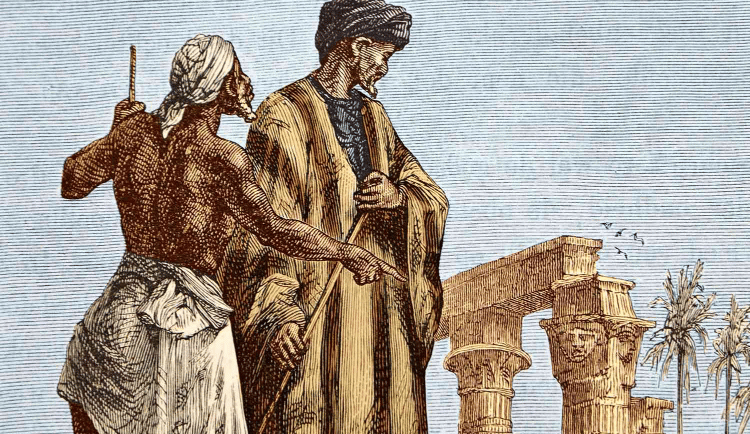Ibn Battuta
Ibn Battuta, a Moroccan explorer born in 1304, is celebrated for his extensive travels across the Islamic world and beyond, covering over 75,000 miles during the 14th century. His journeys took him to North Africa, the Middle East, Central Asia, India, Southeast Asia, China, and even parts of Europe and West Africa. Battuta's detailed accounts of these travels are recorded in his renowned work, Rihla ("The Journey"), which provides invaluable insights into the cultures, societies, and landscapes of the medieval world. His writings significantly enriched travel literature, offering a unique perspective on the interconnectedness of the global Islamic civilization.
Borja Vázquez Fontao
12/17/20231 min read


Ibn Battuta, one of history's most extraordinary travelers, embarked on a journey that spanned three decades and covered over 75,000 miles across the Islamic world and beyond. Born in 1304 in Tangier, Morocco, Battuta began his travels at the age of 21, initially setting out on a pilgrimage to Mecca. However, his journey extended far beyond the Hajj, leading him through Africa, the Middle East, Central Asia, India, Southeast Asia, and China. His experiences are meticulously chronicled in his renowned travelogue, Rihla (meaning "The Journey"), which offers a vivid account of the diverse cultures, landscapes, and peoples he encountered.
Places Visited: A Journey Across Continents
Ibn Battuta’s travels took him to some of the most fascinating and far-flung corners of the medieval world. His journey began in 1325 with a pilgrimage to Mecca, after which he continued to explore the Arabian Peninsula, visiting cities like Medina, Baghdad, and Damascus. From there, he ventured into Africa, traveling along the Swahili Coast to places like Mombasa and Kilwa, marveling at the wealth and sophistication of these East African city-states.
In the Middle East, Battuta explored Iraq and Persia, recording his observations of the rich cultural and intellectual life in cities like Baghdad and Isfahan. He then crossed into Central Asia, visiting the Silk Road cities of Bukhara and Samarkand, before traveling to India, where he served as a judge at the court of Sultan Muhammad bin Tughluq in Delhi.
In India, Battuta encountered customs that were as perplexing as they were fascinating. He witnessed a peculiar form of justice where a man accused of a crime had to prove his innocence by retrieving a stone from a boiling pot of oil without being burned. This trial by ordeal, which Battuta described with incredulity, underscored the stark differences in legal practices between India and his homeland (*Rihla*, p. 320).
Battuta’s travels didn’t stop there. He continued to Southeast Asia, visiting the Maldives, Sri Lanka, and Sumatra, before reaching China. His account of the bustling cities of Hangzhou and Guangzhou provides one of the earliest detailed descriptions of China by a Muslim traveler. He marveled at the sophisticated infrastructure and the grandeur of the Yuan dynasty’s palaces, describing Hangzhou as "the largest city I have ever seen" (*Rihla*, p. 467).
Emotions and Motivations: The Drive to Explore
Ibn Battuta's motivations for travel were multifaceted. His initial journey was driven by religious devotion, as he sought to fulfill the Islamic duty of Hajj. However, as he traveled, his motivations expanded to include a deep curiosity about the world and a desire to learn from the diverse cultures he encountered. In Rihla, Battuta frequently expresses awe and admiration for the places he visits, from the grandeur of the Sultan’s palace in Delhi to the serene beauty of the Maldivian islands.
However, his time in the Maldives also provided a humorous insight into local customs. Battuta was appointed as a judge on the islands and soon found himself bewildered by the islanders' curious tradition of marrying foreigners for a brief period, only to divorce them shortly after. Unaware of this custom, Battuta found himself married and divorced several times in quick succession, much to his confusion (*Rihla*, p. 210). This experience not only amused him but also highlighted the cultural differences he encountered throughout his journey.
Despite his adventurous spirit, Battuta’s writings also reveal moments of homesickness and longing for familiar comforts. He described the melancholy of being a stranger in a foreign land, reflecting on how the vastness of his travels often left him feeling isolated. Yet, these emotions were counterbalanced by his deep faith, which he believed guided and protected him throughout his journeys.
Challenges and Experiences: The Perils of Exploration
The challenges Ibn Battuta faced were numerous and varied. Traveling in the 14th century was fraught with dangers, from unpredictable weather to treacherous terrain and the constant threat of banditry. In one particularly harrowing episode, Battuta recounts his near-death experience while crossing the Arabian Desert. A sudden sandstorm left him disoriented and separated from his caravan, wandering alone in the vast desert until he was miraculously found by a passing group of Bedouins (*Rihla*, p. 145). This brush with death was a stark reminder of the perils that even the most seasoned travelers faced in such unforgiving environments.
Cultural challenges also played a significant role in his experiences. As a devout Muslim, Battuta often encountered societies with customs and practices that were alien to him. In China, for example, he was bewildered by the local custom of eating pork and drinking wine, both of which are prohibited in Islam. His discomfort with these practices is evident in his writing, where he often contrasts what he perceives as the moral laxity of non-Muslim societies with the piety of the Islamic world.
Legacy in Travel Literature
Ibn Battuta’s Rihla is one of the most important travel accounts of the medieval period, providing an unparalleled glimpse into the Islamic world and beyond during the 14th century. His detailed descriptions of the places he visited, combined with his keen observations of social, religious, and cultural practices, make his work a valuable historical document.
One of the most amusing stories in Rihla involves a peculiar creature Battuta claimed to have seen in the Maldives. He described encountering what the locals called a "Mermaid," a creature he later realized was a dugong, a sea mammal related to the manatee. This episode, while not scientifically accurate, demonstrates the blend of myth and reality that often colored travelers' accounts of distant lands (*Rihla*, p. 212).
Conclusion
Ibn Battuta’s travels, as documented in Rihla, represent one of the most extraordinary journeys ever undertaken by a single individual. From the bustling markets of Cairo to the remote islands of the Maldives, his writings offer a vivid and engaging account of a world that was both diverse and interconnected. Through his detailed observations, emotional reflections, and humorous anecdotes, Ibn Battuta provides readers with a unique perspective on the medieval world, one that continues to fascinate and inspire to this day. His legacy as one of history’s greatest travelers is firmly established, and Rihla remains a testament to the enduring human spirit of exploration and discovery.
